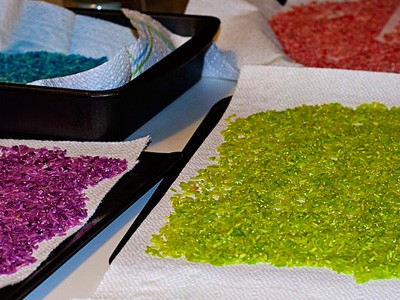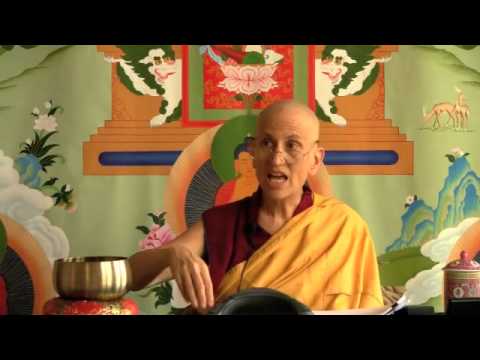Generosity: The first paramita
By J. B.

Generosity: What is it?
It is the first of the six paramitas, which are also called the six far-reaching practices and the six perfections. The paramita of generosity consists of giving in both the material and spiritual senses. This includes being compassionate and kind and not keeping accumulated merit for oneself, but rather dedicating it to the liberation of all beings. Generosity is the attitude of offering everything we have; it transforms all undesirable things in our life into happiness.
Practicing compassion
As we practice generosity, we are also at the same time practicing compassion. We need to develop perfect compassion which means feeling for every living being the same compassion that a mother feels when her child is in danger. With great compassion we do not simply wish every living being to be free from all suffering; we wish to free them from suffering ourselves.
To me, generosity is giving anything without the expectation of a reward. It is an act of extreme kindness and compassion. Throughout my life I have practiced generosity in many ways. For example, in the past I came across a homeless family who was hungry and in need and I took this family out to eat and gave them the money from my pocket. I did this knowing I would not be rewarded. But I have no need of a material reward, for the joy it brings me to do things like this is enough of a reward.
The practice of the bodhisattva
There are many stories centered on the bodhisattvas’ willingness to sacrifice themselves for others. For example: in a former life of the Buddha, when he was a prince, he lay down before a ravenous tigress, offering his body as food to her so that in turn she could feed her starving cubs. Such stories of the bodhisattva’s generosity in sacrificing himself for the benefit of others have inspired many others, as well as me, to imitate him. The generosity shown by the Buddhas and bodhisattvas is a great example for us to follow, as well as a great lesson on the first paramita.
Another great figure who was known for his generosity was Anathapindika. His name means: “One who takes care of widows and orphans.” The meaning of his name alone says a lot about him, but he was also the one who presented the Jeta Grove to Sakyamuni Buddha and the sangha. The Buddha gave many teachings there. The Buddha was also known for his generosity to give teachings to all that would listen.
The Compendium of the Perfections states:
Bodhisattvas give up all possessions that intensify the fault of stinginess, which does not expand generosity, the deceiver that becomes an obstacle.
Bodhisattvas should not accept jewels, wealth, or even a kingdom if it would harm their generous attitude or obscure the path to perfect enlightenment.
Stinginess may lead us to feel attached to our goals and think of everything to be our personal property, but if we are able to generate intense delight as we contemplate the many benefits of giving things away and great fear when we reflect on the faults of stinginess and then repeatedly condition ourselves to this thinking, we will naturally produce a generous attitude. In doing so, we will progress on the path to becoming a bodhisattva.
The Compendium of Perfections also states:
All these things are yours;
I have no pride that they are mine.
Someone who has this amazing thought repeatedly and emulates the qualities of the perfect Buddha is called a bodhisattva—so said the Inconceivable Buddha, the Supreme being.
Eliminating attachment
Thus we practice to destroy our stingy clinging to all that we own—our body, resources, and roots of virtue, and we completely condition our mind to giving them away to living beings from the depths of our heart. Not only that, we also give to others the effects of this giving. In this way we will be on our way to perfecting generosity.
So I am committed to practicing generosity, and I will practice looking deeply to realize that the happiness and suffering of others are not separate from my own happiness and suffering. True happiness is not possible without understanding and compassion.
May the merit accumulated from this speech be dedicated to all sentient beings. — Thank you!
Incarcerated people
Many incarcerated people from all over the United States correspond with Venerable Thubten Chodron and monastics from Sravasti Abbey. They offer great insights into how they are applying the Dharma and striving to be of benefit to themselves and others in even the most difficult of situations.


